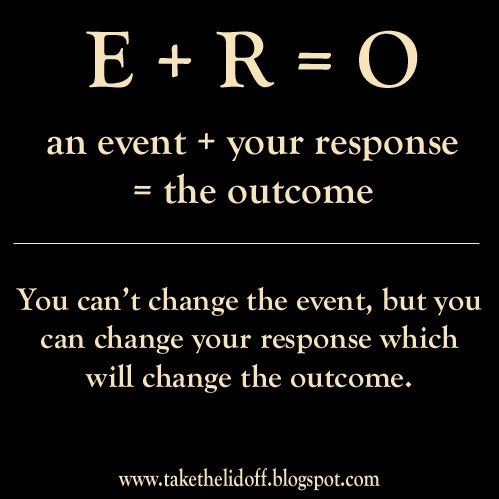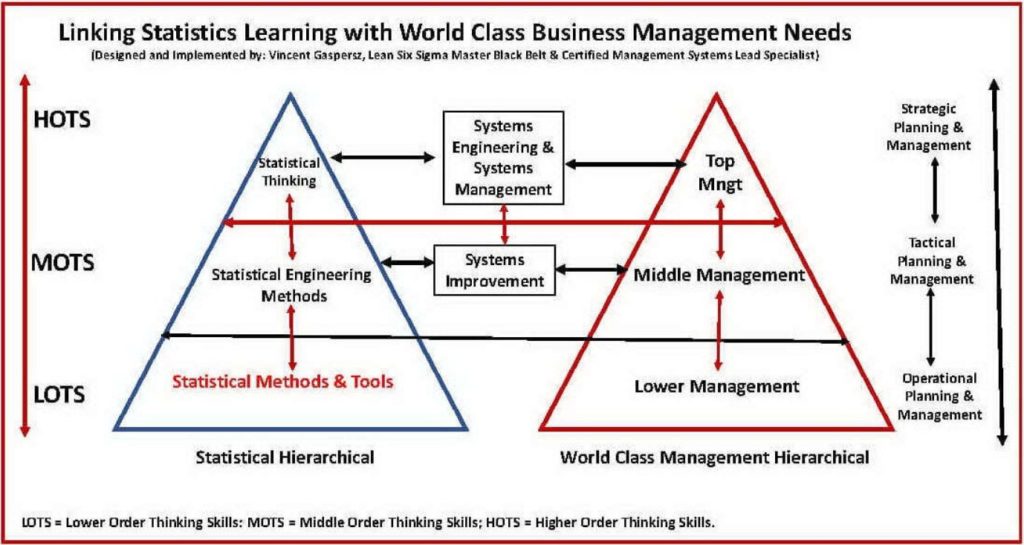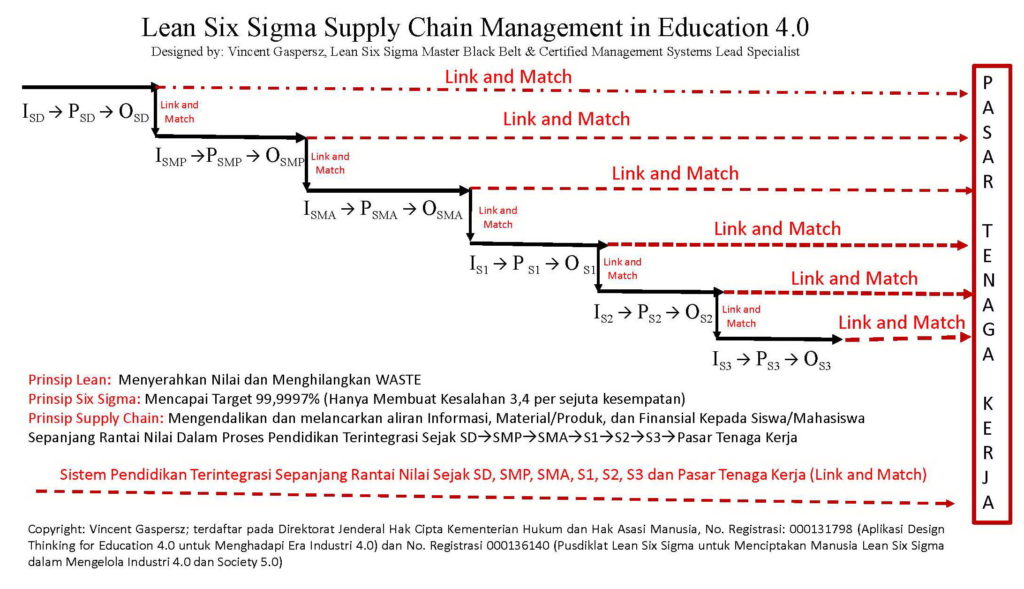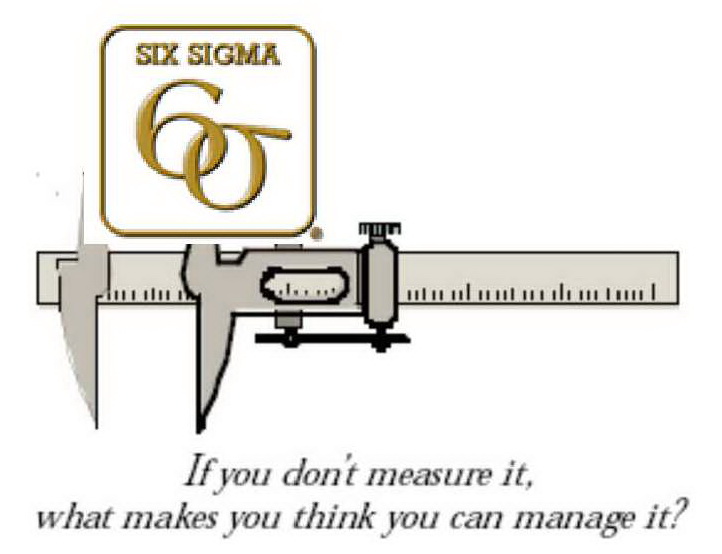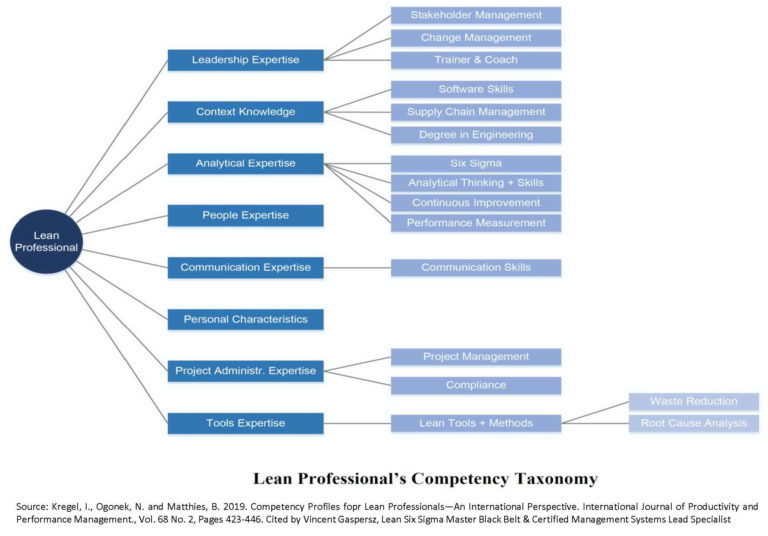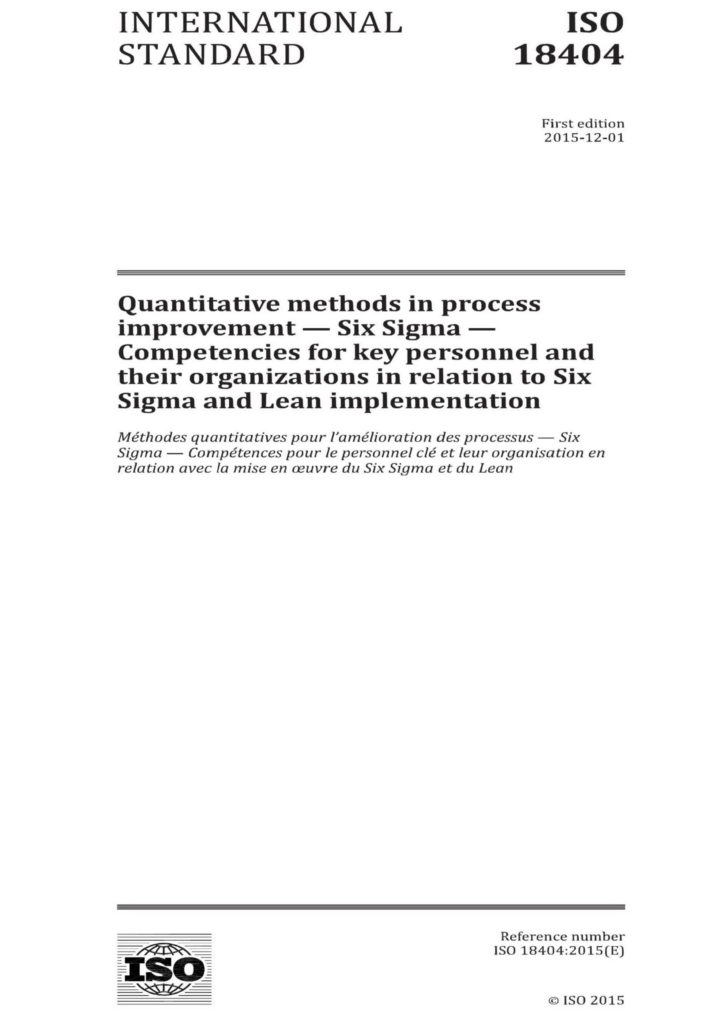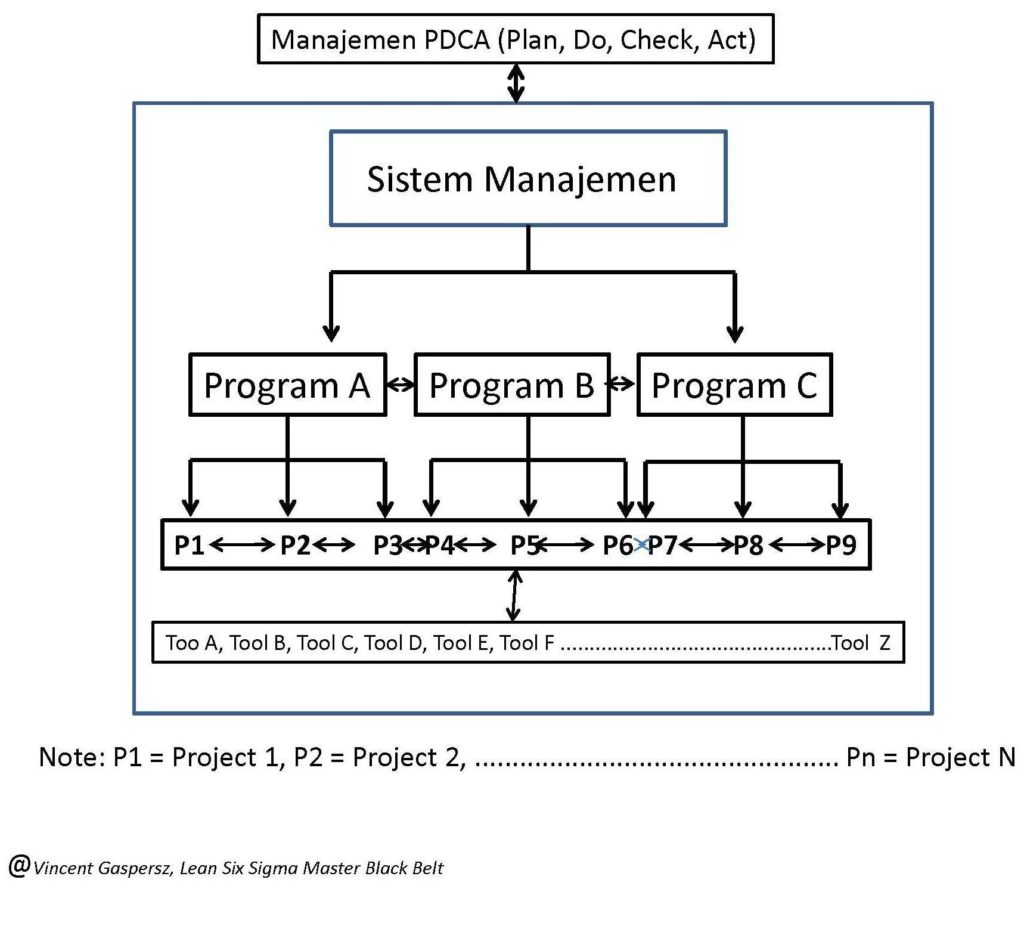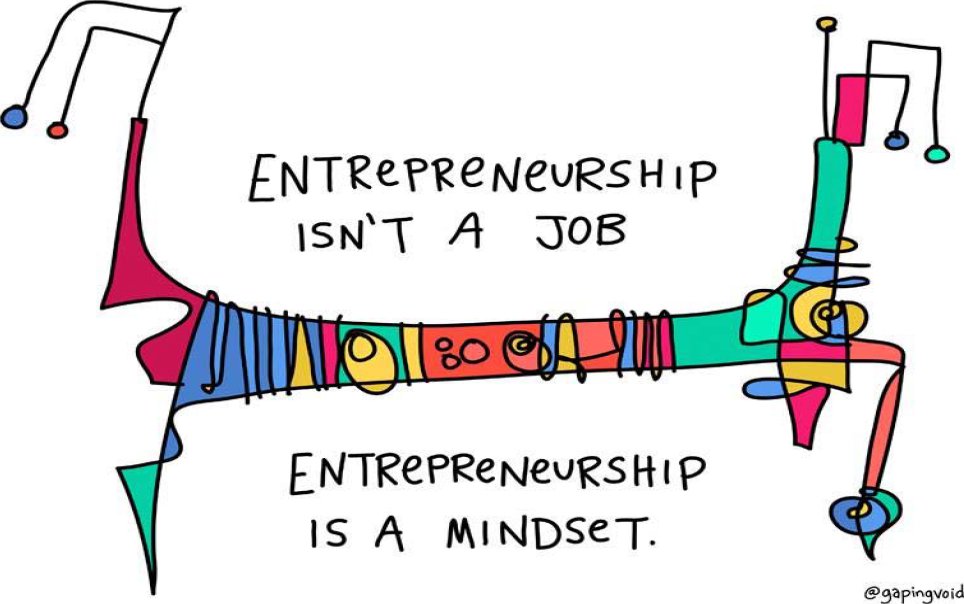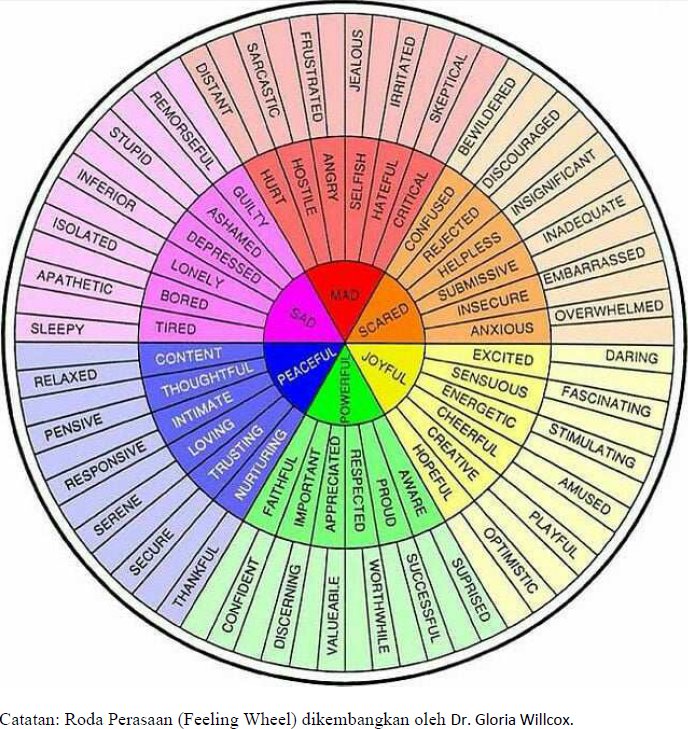-
Bahasa Indonesia
-
English
Oleh: Vincent Gaspersz, Lean Six Sigma Master Black Belt
Profesor Richard Wiseman dari University of Hertfordshire Inggris, mencoba meneliti hal-hal yang membedakan orang-orang yang beruntung dengan orang-orang yang sial. Wiseman merekrut sekelompok orang yang merasa hidupnya selalu beruntung, dan sekelompok lain yang hidupnya selalu mengalami kesialan. Memang kesan nya seperti main-main, bagaimana mungkin keberuntungan bisa diteliti. Namun ternyata memang orang yang beruntung bertindak berbeda dengan mereka yang sial.
Misalnya, dalam salah satu penelitian “the Luck Project” ini, Wiseman memberikan tugas untuk menghitung berapa jumlah foto dalam koran yang dibagikan kepada dua kelompok tadi. Orang-orang dari kelompok sial memerlukan waktu rata-rata 2 (dua) menit untuk menyelesaikan tugas ini melalui menghitung foto-foto itu satu per satu, mulai dari foto pertama sampai foto terakhir. Sementara mereka dari kelompok Untung hanya perlu beberapa detik saja!
Mengapa dapat cepat? Ya, karena sebelumnya pada halaman kedua Wiseman telah meletakkan tulisan yang kecil berbunyi “berhenti menghitung sekarang! ada 43 gambar di koran ini”. Kelompok sial melewatkan tulisan ini karena asyik menghitung foto-foto itu dalam koran. Bahkan, lebih iseng lagi, di tengah-tengah koran, Wiseman menaruh pesan lain yang bunyinya: “berhenti menghitung sekarang dan bilang ke peneliti Anda menemukan ini, dan menangkan $250!” Lagi-lagi kelompok sial melewatkan pesan tadi, karena keasyikan menghitung foto-foto dalam koran itu, sehingga mengabaikan pesan apapun! Memang benar-benar sial!
Dari penelitian yang diklaimnya ilmiah (scientific) ini, Wiseman menemukan 4 faktor yang membedakan mereka yang beruntung dari yang sial:
- Sikap terhadap kesempatan atau peluang (opportunity).
Orang beruntung ternyata memang lebih terbuka terhadap kesempatan atau peluang. Mereka lebih peka terhadap adanya kesempatan, pandai menciptakan kesempatan, dan bertindak ketika kesempatan itu datang. Orang beruntung membaca tulisan: OPPORTUNITY IS NOWHERE sebagai: OPPORTUNITY IS NOW HERE—Kesempatan adalah SEKARANG, sedangkan orang sial tetap membaca: OPPORTUNITY IS NOWHERE—kesempatan tidak ada di mana-mana!
Bagaimana hal ini memungkinkan?
Ternyata orang-orang yg beruntung memiliki sikap yang lebih rileks dan terbuka terhadap pengalaman-pengalaman baru. Mereka lebih terbuka terhadap interaksi dengan orang-orang yang baru dikenal, dan menciptakan jaringan-jaringan kerja (networking) baru. Orang yang sial lebih tegang sehingga tertutup terhadap kemungkinan- kemungkinan baru. Sebagai contoh, ketika Barnett Helzberg seorang pemilik toko permata di New York hendak menjual toko permata nya, tanpa disengaja sewaktu berjalan di depan Plaza Hotel, dia mendengar seorang wanita memanggil pria di sebelahnya: “Mr. Buffett!” Hanya kejadian sekilas yang mungkin akan dilewatkan kebanyakan orang yang kurang beruntung. Tapi Helzberg berpikir lain. Ia berpikir jika pria di sebelahnya ternyata adalah Warren Buffett, salah seorang investor terbesar di Amerika, maka dia berpeluang menawarkan jaringan toko permata nya. Maka Helzberg segera menyapa pria di sebelahnya, dan betul ternyata dia adalah Warren Buffett. Perkenalan pun terjadi dan Helzberg yang sebelumnya sama sekali tidak mengenal Warren Buffett, berhasil menawarkan bisnisnya secara langsung kepada Buffett, bertemu muka. Setahun kemudian Buffett setuju membeli jaringan toko permata milik Helzberg. Betul-betul ia beruntung.
- Menggunakan intuisi dalam membuat keputusan.
Orang yang beruntung ternyata lebih mengandalkan intuisi daripada logika. Keputusan-keputusan penting yang dilakukan oleh orang beruntung ternyata sebagian besar dilakukan atas dasar bisikan “hati nurani” (intuisi) daripada hasil otak-atik angka yang canggih. Angka-angka akan sangat membantu, tetapi keputusan akhir berdasarkan intuisi yang kuat. Barangkali sulit bagi orang yang sial adalah, bisikan hati nurani tadi akan sulit didengar jika otak kita diisi dengan hal-hal kecil dan rumit yang berkelanjutan alias tak berkesudahan. Makanya orang beruntung umumnya memiliki metode untuk mempertajam intuisi mereka, misalnya melalui meditasi yang teratur, merenung tentang berbagai keberhasilan dan keberuntungan masa lalu, berdialog dengan Tuhan (pengalaman pribadi saya untuk meningkatkan ketajaman intuisi adalah melalui berdialog dengan Tuhan). Pada kondisi mental yang tenang, dan pikiran yang jernih, apalagi selalu berfokus pada Tuhan, maka intuisi kita akan lebih tajam dan mudah diakses. Dan apabila hal ini semakin sering digunakan, maka intuisi kita juga akan semakin tajam.
Banyak teman saya yang bertanya, “mendengarkan intuisi” itu bagaimana? Berdialog dengan Tuhan itu bagaimana? Apakah tiba-tiba ada suara yang terdengar menyuruh kita melakukan sesuatu? Jawaban terhadap pertanyaan ini sangat sulit karena bersifat pribadi (subyektif), harus dirasakan dan dialami sendiri! Namun pengalaman pribadi saya adalah muncul suara dalam hati nurani dan itu yang saya laksanakan. Saya percaya akan prinsip “TAAT” kepada Tuhan, yaitu:
- T = Tuhan berfirman sesuai yang ada dalam kitab suci,
- A = Aku percaya dan melakukan sesuai firman Tuhan,
- A = Aku melakukan yang Aku bisa TANPA secara sengaja membuat kesalahan,
- T = Tuhan melakukan hal-hal yang Aku TIDAK bisa.
- Selalu berharap kebaikan akan datang.
Orang yang beruntung ternyata selalu “gede rasa (ge-er)” terhadap kehidupan. Selalu berprasangka baik bahwa kebaikan akan selalu datang kepadanya. Dengan sikap mental yang demikian, mereka lebih tahan terhadap ujian yang menimpa mereka, dan akan lebih positif dalam berinteraksi dengan orang lain. Coba saja kita lakukan test sendiri secara sederhana, tanya orang sukses yang kita kenal, bagaimana prospek masa depan mereka?. Pasti mereka akan menceritakan optimisme dan harapan-harapan besar mereka!
- Mengubah hal yang buruk menjadi baik.
Orang-orang beruntung sangat pandai menghadapi situasi buruk dan mengubahnya menjadi kebaikan. Bagi mereka setiap situasi selalu ada sisi baiknya. Dalam salah satu pengujian, Prof Wiseman meminta peserta untuk membayangkan sedang pergi ke bank dan tiba-tiba bank tersebut diserbu kawanan perampok bersenjata. Dan peserta diminta mengutarakan reaksi mereka. Reaksi orang dari kelompok sial pada umumnya adalah: “wah sial benar hari ini, saya berada di tengah-tengah perampokan”. Sementara reaksi orang beruntung, adalah: “untung saya ada di sana, sehingga saya bisa menuliskan pengalaman saya untuk media dan dapat uang”. Apapun situasinya orang yg beruntung pokoknya selalu bersikap positif terus! Orang-orang yang beruntung cepat mampu beradaptasi dengan situasi buruk dan mengubahnya menjadi keberuntungan.
Sekolah Keberuntungan
Bagi mereka yang kurang beruntung, Prof Wiseman bahkan membuka “Luck School”, sekolah ini bisa juga ditiru untuk dibangun di NTT agar menciptakan banyak orang yang beruntung!
Latihan yang diberikan Wiseman untuk orang-orang semacam itu adalah dengan membuat “Luck Diary”, buku harian keberuntungan. Setiap hari, peserta harus mencatat hal-hal positif atau keberuntungan yang terjadi.
Catatan: pengalaman pribadi saya adalah melalui membuat “kotak keberuntungan”, di mana setiap saya memperoleh keberuntungan atau hasil positif yang besar, saya menulis pada secarik kertas, lalu memasukkan kertas itu ke dalam kotak. Pada tanggal 31 Desember jam 24:00 (12 malam) saya membuka kotak itu, kemudian menerapkan konsep “DUIT = Doa 3M, Usaha, Ikhtiar, Tawakal” untuk tahun mendatang yang akan mulai dilaksanakan lagi hal-hal besar pada tanggal 1 Januari jam 00.00 sampai 31 Desember Jam 24:00, demikian seterusnya!. Di dalam “kotak keberuntungan” itu saya menulis “KOMITMEN PRIBADI”, misalnya: Jika saya berhasil, maka saya HARUS menerima REWARD dari saya berupa: tuliskan hal-hal apa yang disukai (misalnya: jalan-jalan ke luar negeri, mengganti mobil, merenovasi rumah, dll). Hal ini menerapkan prinsip: Motivation vs. Reward & Recognition ke dalam diri kita!
Prof. Wiseman melarang keras menuliskan kesialan pada orang-orang sial yang masuk sekolah keberuntungan itu! Pada awalnya mungkin sulit, tapi begitu mereka bisa menuliskan satu keberuntungan, besok-besoknya akan semakin mudah dan semakin banyak keberuntungan yg mereka tuliskan.
Dan ketika mereka melihat beberapa hari ke belakang “Lucky Diary” mereka, maka mereka semakin sadar betapa beruntungnya mereka. Dan sesuai prinsip “law of attraction”, semakin mereka memikirkan betapa mereka beruntung, maka semakin banyak lagi peristiwa atau hal-hal keberuntungan yang datang pada hidup mereka.
Menerapkan Formula E + R = O (Event + Response = Outcome)
Jika kita memperhatikan Orang-orang Beruntung vs. Orang-orang Sial di atas, maka perbedaan terletak dalam aplikasi formula berikut: E + R = O (Event + Response = Outcome). Berdasarkan formula ini, prinsip utama adalah: kita TIDAK dapat mengubah suatu peristiwa (Event) yang TELAH terjadi, tetapi kita dapat mengubah Response (R) untuk memberikan Outcome (O) sesuai yang kita inginkan.
Sebagai misal peristiwa yang terjadi adalah ke-GAGAL-an (Event = GAGAL), maka orang-orang Sial biasanya menanggapi secara NEGATIF (Response = NEGATIF) dengan menyalahkan orang lain dan/atau lingkungan, sehingga Outcome (O) yang diperoleh tetap GAGAL (Outcome = GAGAL). Bagi orang-orang beruntung, meskipun mengalami peristiwa yang sama (Event = GAGAL), tetapi mereka menanggapi secara POSITIF (Response = POSITIF) sehingga pada akhirnya menimbulkan Outcome (O) yang sesuai harapan (Outcome = SUCCESS). Dengan demikian 100% tanggung jawab apakah kita akan Beruntung (SUCCESS) atau Sial (GAGAL) tergantung pada diri kita sendiri.
Saya pribadi, jika mengalami ke-GAGAL-an (Event = GAGAL), maka akan menanggapi secara POSITIF (Response = POSITIF) agar terus berfokus pada Outcome (O) yang menuju SUCCESS (Outcome = SUCCESS). Sehingga ke-GAGAL-an (Event = GAGAL) dapat ditanggapi POSITIF sebagai pembelajaran yang lebih giat lagi (Response = POSITIF) agar Outcome (O) di waktu yang akan datang tetap SUCCESS (Outcome = SUCCESS). Sehingga ke-GAGAL-an (Event = GAGAL) dapat ditanggapi secara POSITIF (Response = POSITIF) sebagai SUCCESS yang tertunda, agar pada waktu yang akan datang Outcome (O) tetap SUCCESS (Outcome = SUCCESS).
Dengan demikian saya menggunakan akronim GAGAL berikut merupakan bentuk Response = POSITIF terhadap peristiwa (Event = GAGAL) yang telah terjadi, agar Outcome (O = SUCCESS).
- G = Gairah (Tetap bergairah menuju Outcome = SUCCESS)
- A = Alasan mengapa terjadi ke-GAGAL-an (Proses pembelajaran mencari akar-akar penyebab dari masalah)
- G = Gagasan kreatif untuk menghilangkan akar-akar penyebab terjadi ke-GAGAL-an itu.
- A = Aksi nyata menerapkan tindakan kreatif untuk menghilangkan akar-akar penyebab ke-GAGAL-an itu.
- L = Lanjutkan hidup ini menuju Outcome = SUCCESS yang telah menjadi tujuan atau target yang telah ditetapkan.
Jika kita menerapkan formula: E + R = O (Event + Response = Outcome), maka TIDAK ada alasan lagi bahwa kita akan terus-menerus Sial (mengalami ke-GAGAL-an terus-menerus).
Jadi, sesederhana itu rahasia si Untung. Ternyata semua orang juga bisa BERUNTUNG! Siap mulai menjadi si Untung?
Salam SUCCESS.
Scientific Research of Good vs. Bad Luck
By: Vincent Gaspersz, Lean Six Sigma Master Black Belt
Profesor Richard Wiseman from University of Hertfordshire, England, tried to research things that distinguish lucky people and unlucky people. Wiseman recruited a group of people who feel that their lives were always lucky, and another group of people who feel that their lives always have bad luck. It might sound like a joke; how could luck be possibly researched? But, apparently, lucky people indeed acted differently than those who were unlucky.
For example, in one of these studies of “The Luck Project”, Wiseman gave the task to calculate how many photos were in the same newspapers that were distributed to the two groups earlier. People from the unlucky group needed the average time of 2 (two) minutes to complete this task by counting those photos one by one, starting from the first photo to the last photo. Whereas, those from the lucky group only needed just a few seconds!
Why could they did it so quickly? Yes, because previously on the second page of the newspaper, Wiseman had placed the small print that read: “Stop counting now! There are 43 pictures in this newspaper”. The unlucky group missed this print as they were busy counting the photos in the newspaper. In fact, in the middle of the newspaper, Wiseman placed another message that read: “Stop counting now and tell the researcher, You found this, and win $250!”. Again, the unlucky group missed that message because of the fun in counting the photos in that newspaper; thus, ignoring any message! Truly unlucky!
From this research that he claimed to be scientific, Wiseman discovered 4 factors that distinguish those who were lucky from those who were unlucky:
- Attitude towards opportunities.
Lucky people are indeed more open to opportunities. They are more sensitive to the opportunities, are good at creating opportunities, and act when the opportunities come. Lucky people read the writing: OPPORTUNITY IS NOWHERE as: OPPORTUNITY IS NOW HERE, whereas unlucky people still read the writing as: OPPORTUNITY IS NOWHERE!
How is This Possible?
Apparently lucky people have more relaxed and open attitude towards new experiences. They are more open to interactions with new people, and to creating new networks (networking). Unlucky people tend to be more tensed; thus, are also closed toward new possibilities. For example, when Barnett Helzberg, a diamond store owner in New York, was about to sell his diamond store, accidentally while he was walking in front of Plaza Hotel, he heard a woman call the man beside him: “Mr. Buffett!”. Only a fleeting occurence which might be passed by most people who were less fortunate, yet, Helzberg thought otherwise. He thought that if the guy next to him was Warren Buffett, one of the biggest investors in America, then he had the opportunity to offer his network of diamond stores. Heltzberg then immediately greeted the man beside him, and it turned out that he really was Warren Buffett. Introductions ensued and Helzberg who previously did not know Warren Buffett, managed to offer his business directly to Buffer, face to face. A year later, Buffett agreed to buy Helzberg’s network of diamond stores. Helzberg is really a lucky guy.
- Using intuition in making decisions.
Lucky person turns out to rely more on intuition than logic. Important decisions made by lucky person are mainly done on the basis of promptings of conscience (intuition) rather than the result of sophisticated number-crunching. Numbers would be very helpful, but the final decision is based on the strong intuition. Perhaps the difficult part for the unlucky people is, that promptings of conscience would be hard to be heard when our head is filled with continual, interminable, small and complicated things. Therefore, lucky people generally have methods to sharpen their intuitions, for example through regular meditating, reflecting on the past successes and lucks, dialoguing with God (my personal experience to improve my sharpness of intuition is through dialogue with God). In a calm mental state, and a clear mind, moreover by always being focused to God, then our intuition will be sharper and more accessible. And when this is being used increasingly often, then our intuition will also even be sharper.
Many of my friends asked, how can we “listen to that intuition”? How to dialogue with God? Will there be a suddenly sounding voice that tells us to do something? The answer to these questions is very difficult because it is private (subjective), and ought to be felt and experienced by yourself! However, in my personal experience, there would be emerging voice within the conscience and that is what I do. I believe in “TAAT”//Obedience principle toward God, which is:
- T = Tuhan berfirman sesuai yang ada dalam kitab suci,//God said accordingly to the scripture,
- A = Aku percaya dan melakukan sesuai firman Tuhan,//I believe and do according to the word of God,
- A = Aku melakukan yang Aku bisa TANPA secara sengaja membuat kesalahan,//I do what I can WITHOUT intentionally make mistakes,
- T = Tuhan melakukan hal-hal yang Aku TIDAK bisa.//God does things that I CANNOT.
- Always hope good things will come.
Lucky people turn out to always be “big headed” toward life. They always assume in good faith that good things will always come to them. With such mental attitude, they are more resistant toward the life tests that afflict them, and tend to be more positive in interacting with other people. We can try to do our own personal simple test: just ask the successful people that we know, how are the prospects for their future? Surely, they will tell their optimisms and big hopes!
- Change bad things into good.
Lucky people are very good facing bad situations and turn them into good situations. For them, there is always a bright side in every situation. In one test, Prof. Wiseman asked participants to image that they were going to the bank and the bank was suddenly invaded by armed robbers; and the participants were then asked to state their reactions. The reaction of the person from the unlucky group was generally: “Oh, what a bad day is today, I am in the middle of the robbery”. Whereas, the reaction of the lucky person was generally: “I was lucky to be there, so that I can write down my experience for the media and get money out of it”. Whatever the situation is, lucky person always keep a positive attitude no matter what! Lucky people are able to quickly adapt to bad situation and turn it into good situation.
Luck School
For those who are less fortunate, Prof. Wiseman even opened “Luck School”; this school can also be replicated to be built in NTT province in order to generate a lot of lucky people!
The exercises given by Wiseman for those people are by making “Luck Diary”. Each day, participants must note the positive or lucky things that happen
Note: my personal experience is through making “luck box”, where everytime I receive a big luck or positive result, I write on a piece of paper and put the paper into the box. On December 31 at 24:00 (12 midnight) I open that box, then apply the concept of “DUIT = Doa 3M, Usaha, Ikhtiar, Tawakal”//”Money = 3M Prayer, Effort, Endeavor, Trust in God’s Plan” for the upcoming year that will be implemented again on great things from January 1 at 00:00 to December 31 at 24:00, and so on! In that “luck box” I write “PERSONAL COMMITMENT”, for example: If I succeed, then I MUST receive the REWARD from me in the form of: write down the things that are liked (for example: go on a holiday abroad, replace the car, renovate the house, etc.). This thing applies the principle of Motivation vs. Reward & Recognition into ourselves!
Prof. Wiseman strictly prohibits those unlucky people who enroll to his luck school to write down any bad luck! At first it might be difficult, but when they could write one good luck, tomorrow and the next day it would be even easier and there were more lucks that they could write.
And when they saw the few days back in their “Lucky Diaries”, they were even more aware of how lucky they were. And according to the “law of attraction” principle, the more they think about how lucky they are, then even more lucky events or things that come to their lives.
Apply the Formula of E + R = O (Event + Response = Outcome)
If we look at the Lucky People vs. Unlucky People above, then the difference lies in the application of the following formula: E + R = O (Event + Response = Outcome). Based on this formula, the main principle is: we CANNOT change an (Event) that HAS happened; but we can change the Response (R) to give the Outcome (O) that we want.
For example, an event that occurs is a FAILURE (Event = GAGAL//Failure), then unlucky people usually respond NEGATIVELY (Response = NEGATIVE) by blaming other people and/or environment, so that the Outcome (O) that is received is still a GAGAL//Failure (Outcome = GAGAL//Failure). For the lucky people, despite experiencing the same event (Event = GAGAL//Failure), however, they respond POSITIVELY (Response = POSITIVE), so that ultimately lead to the expected Outcome (O)(Outcome = SUCCESS). Thus, 100% of the responsibility whether we will be Lucky (SUCCESS) or Unlucky (GAGAL//Failure) depends on ourselves.
I personally, if experiencing a FAILURE (Event = GAGAL//Failure), then I will respond POSITIVELY (Response = POSITIVE) in order to continue to focus on the Outcome (O) towards SUCCESS (Outcome = SUCCESS). Therefore, the FAILURE (Event = GAGAL) can be taken POSITIVELY as more active learning (Response = POSITIVE) so that the Outcome (O) in the future will still be SUCCESSFUL (Outcome = SUCCESS). Also, FAILURE (Event = GAGAL) can be taken POSITIVELY (Response = POSITIVE) as a delayed SUCCESS, so that in the future the Outcome (O) will remain to be SUCCESSFUL (Outcome = SUCCESS).
Thus, I use the following GAGAL//Failure acronym as a form of Response = POSITIVE towards (Event = GAGAL//Failure) that has happened, in order for the Outcome (O = SUCCESS).
- G = Gairah//Passion (Stay passionate towards Outcome = SUCCESS)
- A = Alasan mengapa terjadi ke-GAGAL-an//Reason why there is FAILURE (Learning process of finding the root causes of problems)
- G = Gagasan kreatif untuk menghilangkan akar-akar penyebab terjadi ke-GAGAL-an itu//Creative ideas to eliminate the root causes of that FAILURE.
- A = Aksi nyata menerapkan tindakan kreatif untuk menghilangkan akar-akar penyebab ke-GAGAL-an itu//Real action to implement creative measures that eliminate the root causes of that FAILURE.
- L = Lanjutkan hidup ini menuju Outcome = SUCCESS yang telah menjadi tujuan atau target yang telah ditetapkan//Continue this life towards Successful Outcome that has been the set purpose or target.
If we apply the formula: E + R = O (Event + Response = Outcome), then there is NO more reason that we will continously be unlucky(experience FAILURES continuously).
So, it is that simple the secret of the Lucky. It turns out that everybody can be LUCKY! Are you ready to be the Lucky?
Best regards for SUCCESS.
